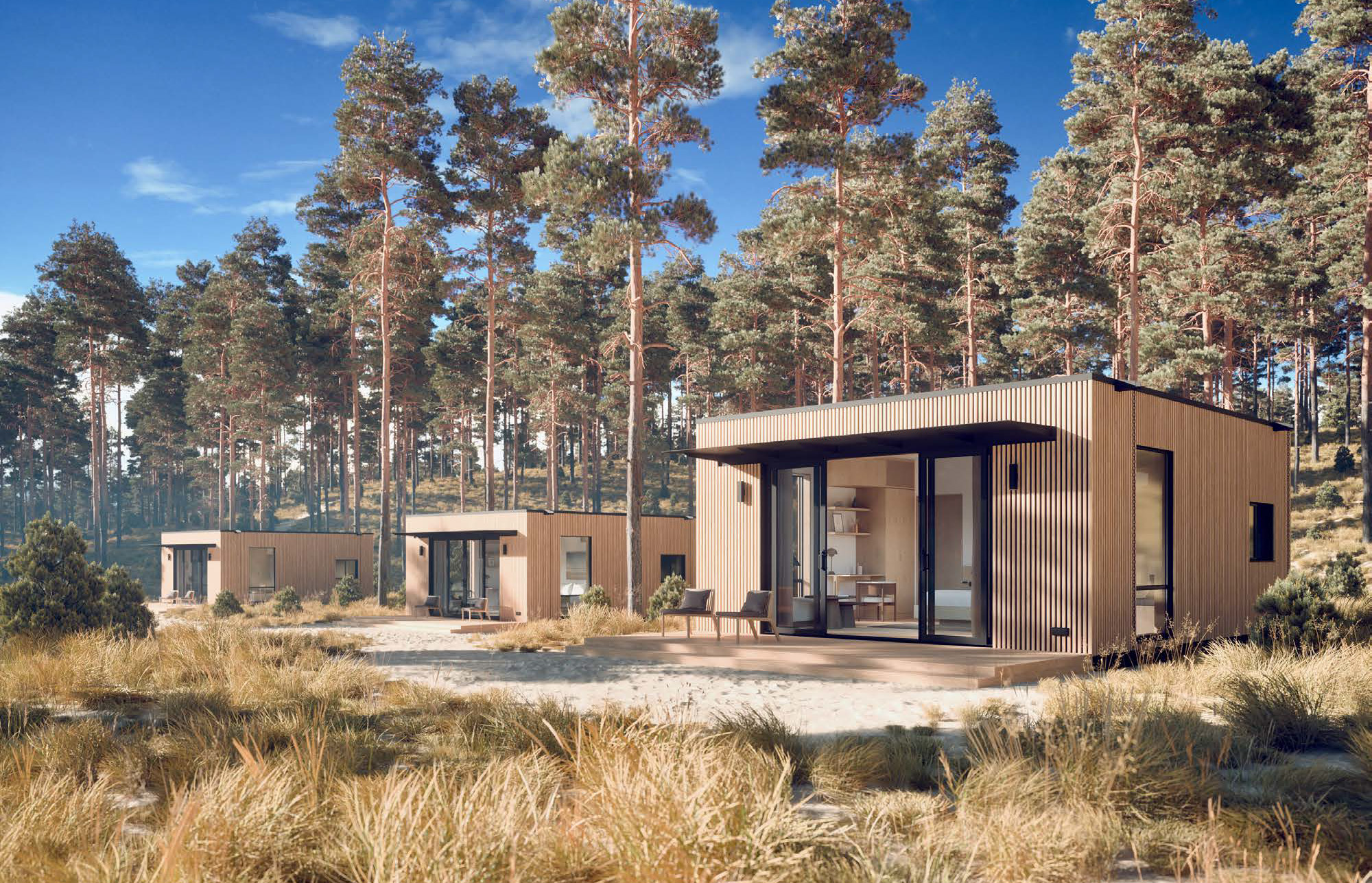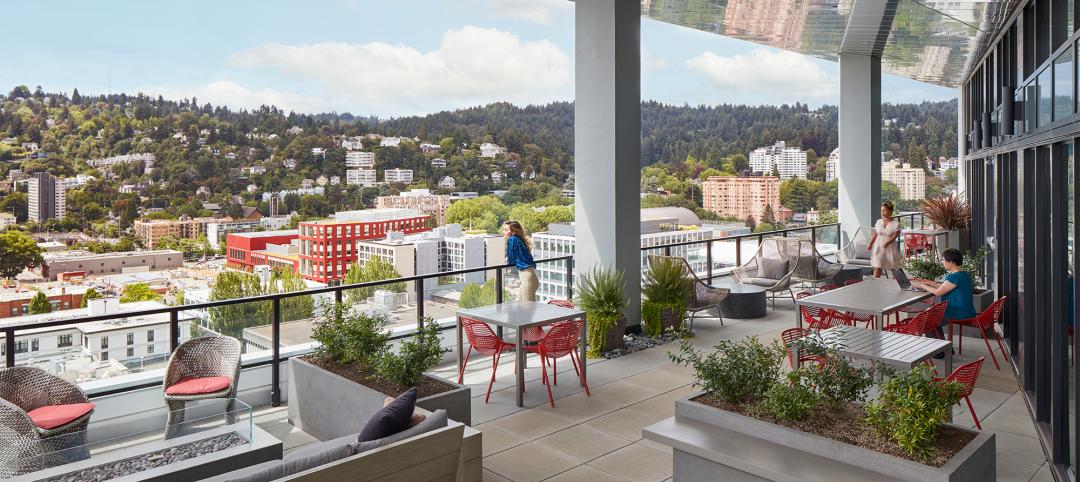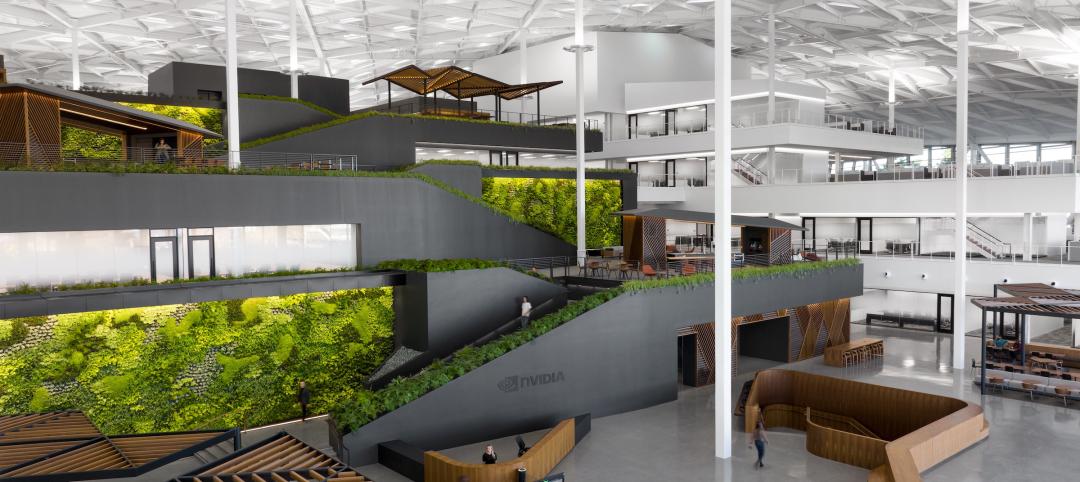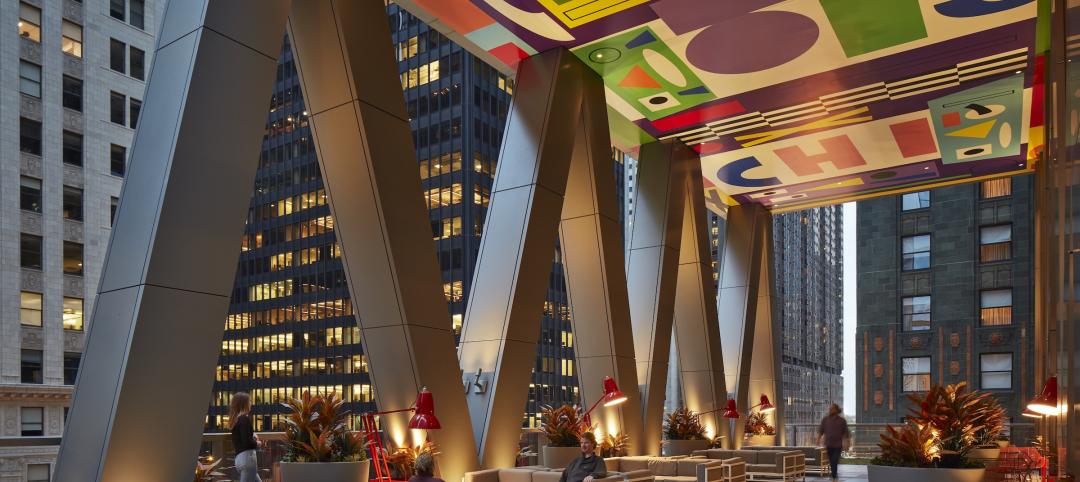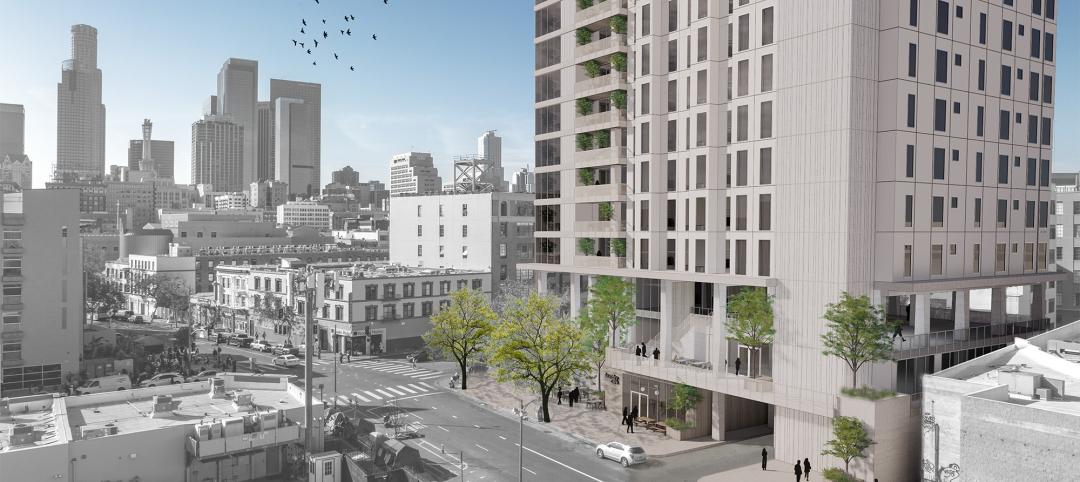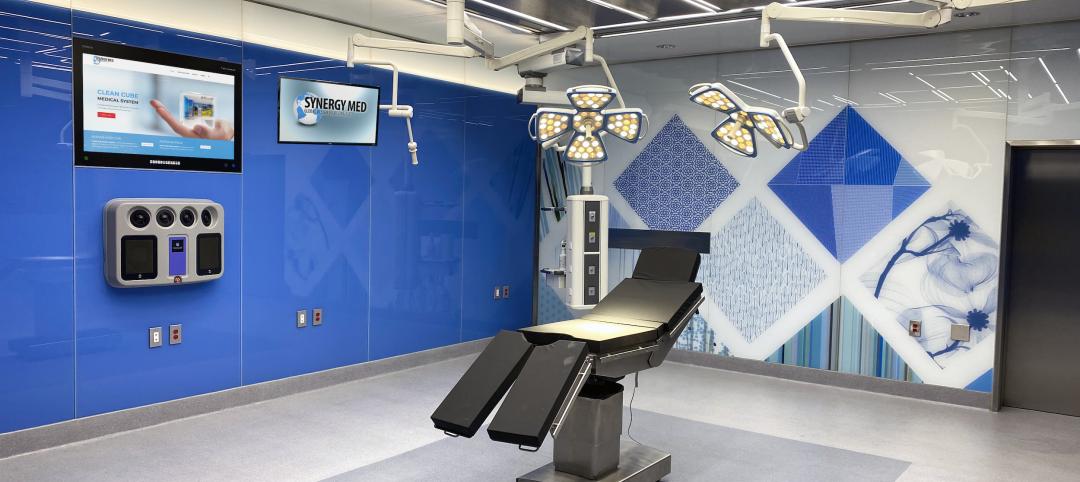The hotel industry has long been dominated by major global corporations, making it difficult for newcomers to break into the field without significant financial resources and industry connections. However, building startup Tomu Inc. wants to change the landscape by offering an innovative and accessible solution: modular hotel units.
Tomu Inc., a sustainability-focused development startup that designs and builds prefabricated housing units, has started production of its luxury hotel units. The startup's modular system provides aspiring hoteliers with turnkey hotel units, akin to upscale tiny house hotel rooms, that are sustainable, affordable, and customizable to cater to various audiences, including underserved travelers. Chris Osaka, CEO of Tomu Inc., emphasizes the company's mission to empower a more diverse range of hosts and hoteliers.
“Our sustainable modular hotel units save money and time, while providing the individual owner a realistic opportunity to enter into the hospitality industry," says Osaka. The CEO underscores that Tomu can bring concepts to life, from design to delivery, within a few months.
Building Customized Modular Hotel Units
The company's approach extends to various types of accommodations, from landscape hotels and cozy bed and breakfasts to compact micro hotels and food and wine-themed properties. Tomu's selling point lies in its proprietary prefab hotel units, which allow property owners to design their rooms with different aesthetics to target specific customer segments.
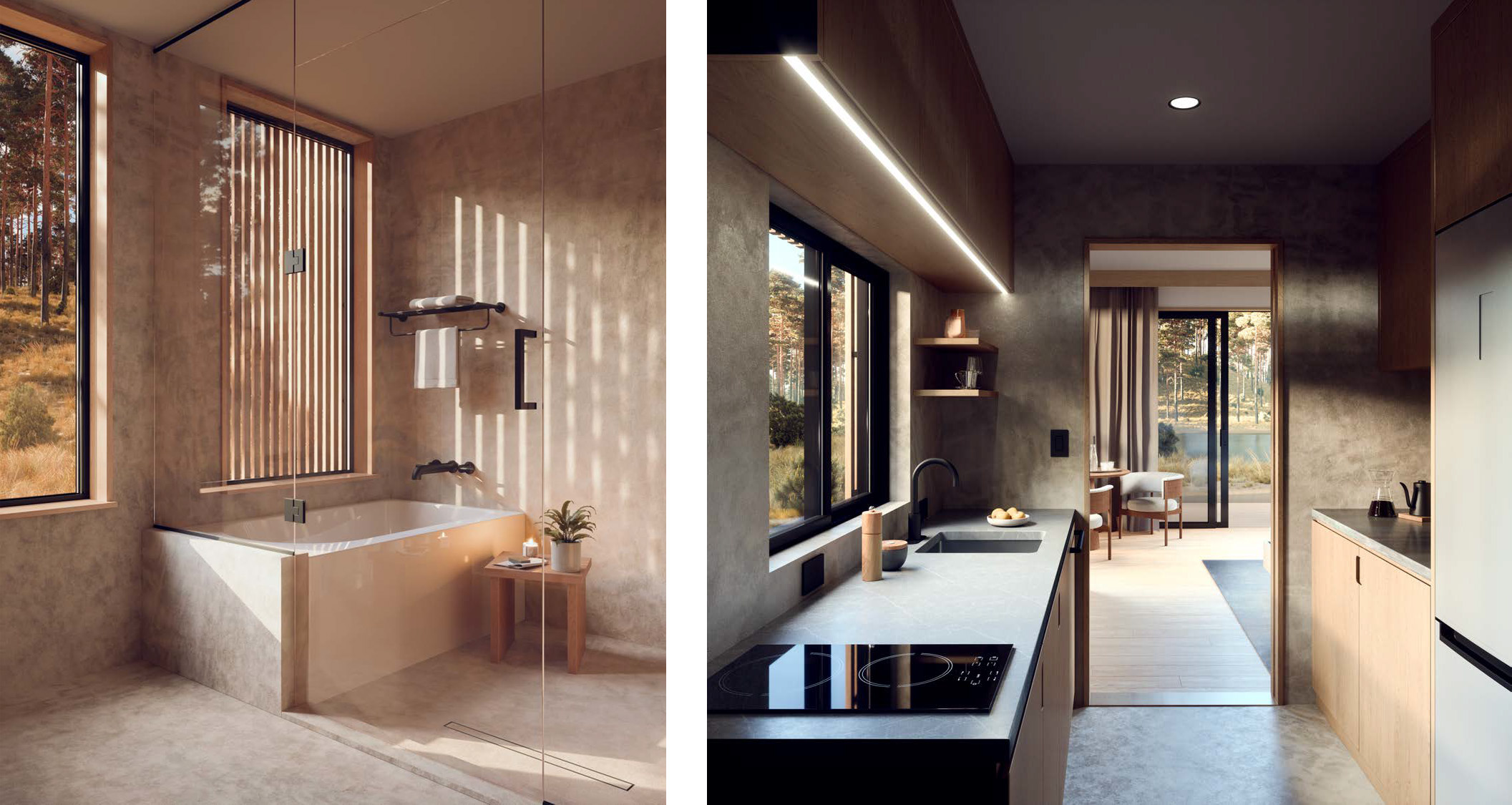
The process involves selecting a prefab unit shell from Tomu and working closely with a design team to fully customize the physical elements and desired design parameters. The company offers three levels of unit configuration:
- Ready To Stay: Tomu's line of detached guest units, known as the Villa Collection, come in studio, one-, and two-bedroom floor plans—all designed in a distinctive Tomu aesthetic. The Villa Collection caters to the evolving preferences of modern travelers, suitable for both short weekend getaways and longer stays.
- Made To Suit: Developer clients have the option to customize configurations of Tomu's Villa Collection to align with project requirements. The startup collaborates with developers to tailor amenities to match the project's unique concept.
- Fully Bespoke: Rather than maintaining Tomu's signature material palette and fixtures, this configuration gives clients full design control.
To support their vision, Tomu recently acquired a 15,000-sf production facility at the Hagerstown Regional Airport in Hagerstown, Md., in order to expand manufacturing capabilities and production by Q4 2023. Learn more about Tomu Inc. on the company's website.
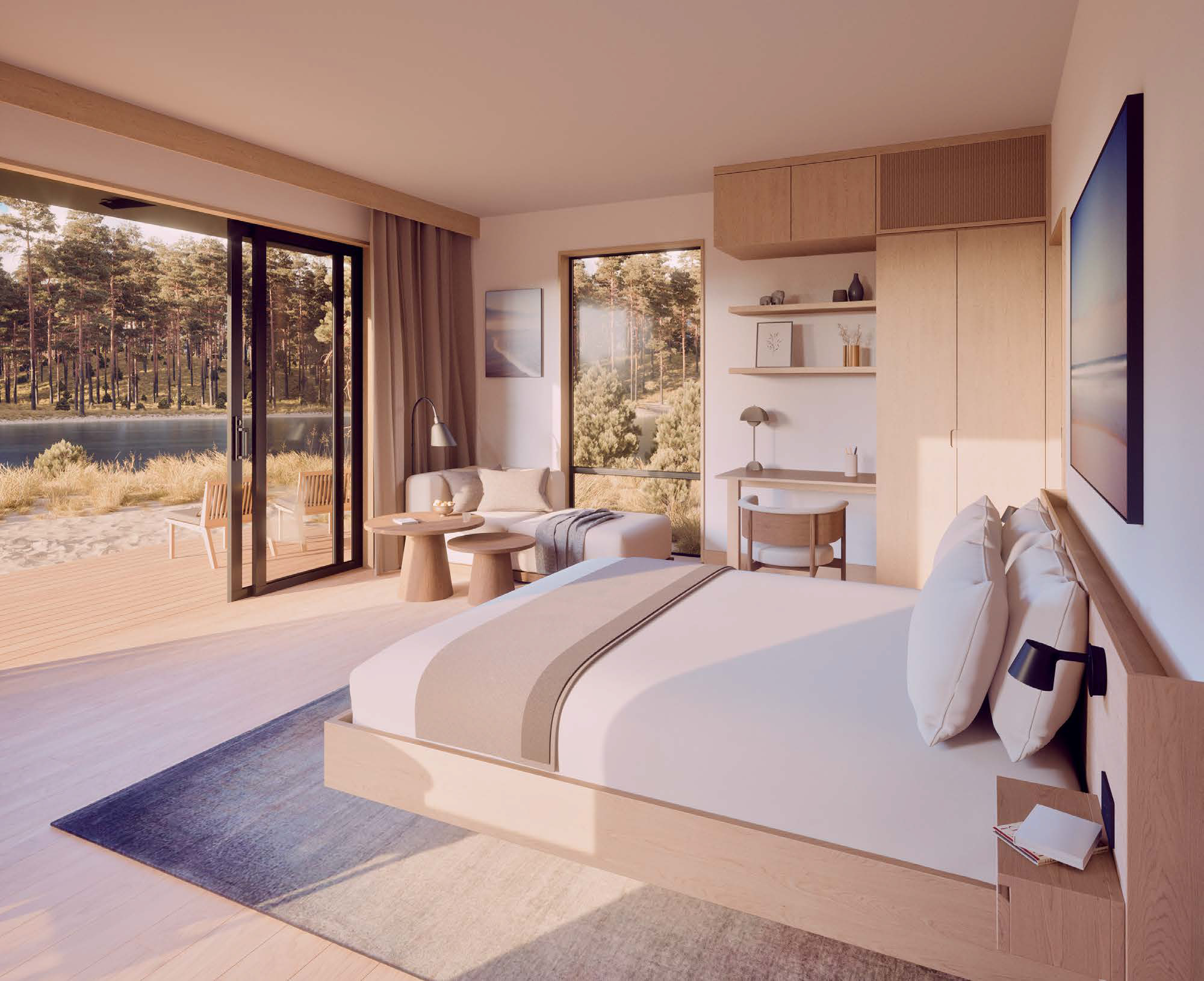
Related Stories
Modular Building | Jan 19, 2024
Building with shipping containers not as eco-friendly as it seems
With millions of shipping containers lying empty at ports around the world, it may seem like repurposing them to construct buildings would be a clear environmental winner. The reality of building with shipping containers is complicated, though, and in many cases isn’t a net-positive for the environment, critics charge, according to a report by NPR's Chloe Veltman.
MFPRO+ Special Reports | Jan 4, 2024
Top 10 trends in multifamily rental housing
Demographic and economic shifts, along with work and lifestyle changes, have made apartment living preferable for a wider range of buyers and renters. These top 10 trends in multifamily housing come from BD+C's 2023 Multifamily Annual Report.
Data Centers | Nov 22, 2023
How is artificial intelligence impacting data center design?
As AI is reshaping how we interact with machines and the world around us, the design of data centers needs to adapt to this fast-changing landscape. So, Page pairs expert thinking with high-performing solutions to meet the needs of rapidly advancing technologies.
Giants 400 | Aug 22, 2023
2023 Giants 400 Report: Ranking the nation's largest architecture, engineering, and construction firms
A record 552 AEC firms submitted data for BD+C's 2023 Giants 400 Report. The final report includes 137 rankings across 25 building sectors and specialty categories.
Giants 400 | Aug 22, 2023
Top 175 Architecture Firms for 2023
Gensler, HKS, Perkins&Will, Corgan, and Perkins Eastman top the rankings of the nation's largest architecture firms for nonresidential building and multifamily housing work, as reported in Building Design+Construction's 2023 Giants 400 Report.
Affordable Housing | Jul 27, 2023
Repeatable, supportive housing for the unhoused
KTGY’s R+D concept, The Essential, rethinks supportive housing to support the individual and community with a standardized and easily repeatable design.
Healthcare Facilities | Jul 19, 2023
World’s first prefab operating room with fully automated disinfection technology opens in New York
The first prefabricated operating room in the world with fully automated disinfection technology opened recently at the University of Rochester Medicine Orthopedics Surgery Center in Henrietta, N.Y. The facility, developed in a former Sears store, features a system designed by Synergy Med, called Clean Cube, that had never been applied to an operating space before. The components of the Clean Cube operating room were custom premanufactured and then shipped to the site to be assembled.
Affordable Housing | Jul 12, 2023
Navigating homelessness with modular building solutions
San Francisco-based architect Chuck Bloszies, FAIA, SE, LEED AP, discusses his firm's designs for Navigation Centers, temporary housing for the homeless in northern California.
Modular Building | Jul 6, 2023
Lennar, Mastry Ventures make multi-million dollar investment in net-zero prefab homes
Mastry Ventures and LENx, the venture arm of homebuilder Lennar, have co-invested in Vessel Technologies’ next-generation housing product.
Affordable Housing | May 17, 2023
Affordable housing advocates push for community-owned homes over investment properties
Panelists participating in a recent webinar hosted by the Urban Institute discussed various actions that could help alleviate the nation’s affordable housing crisis. Among the possible remedies: inclusionary zoning policies, various reforms to increase local affordable housing stock, and fees on new development to offset the impact on public infrastructure.



